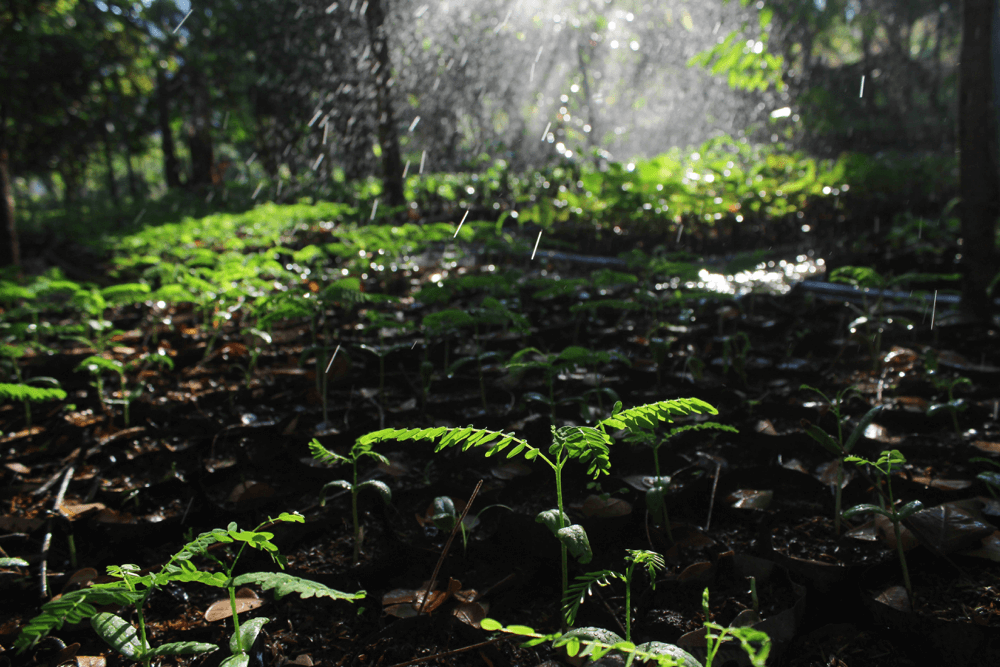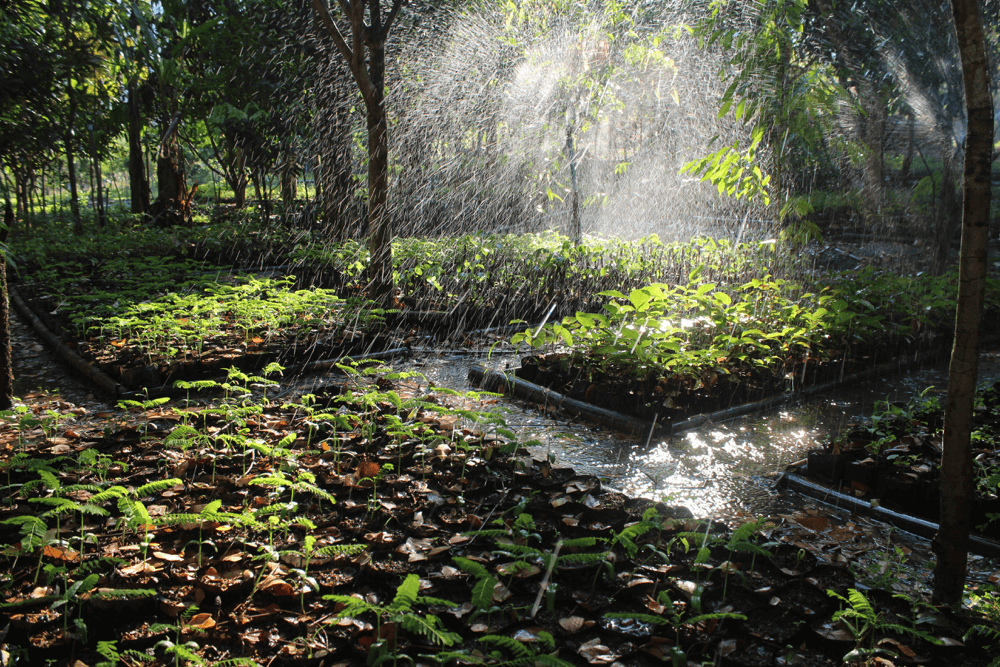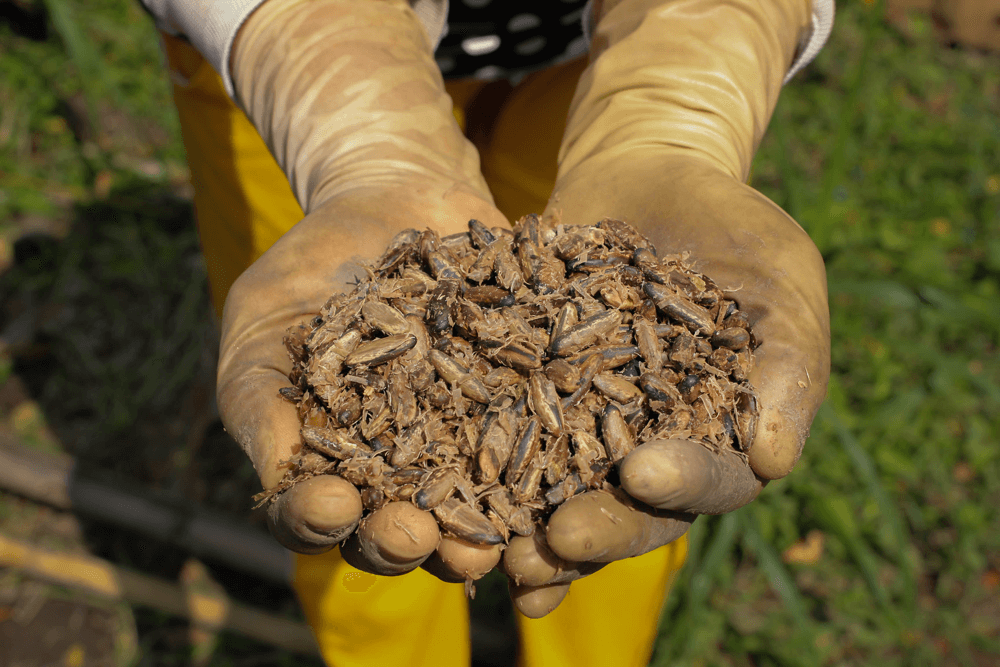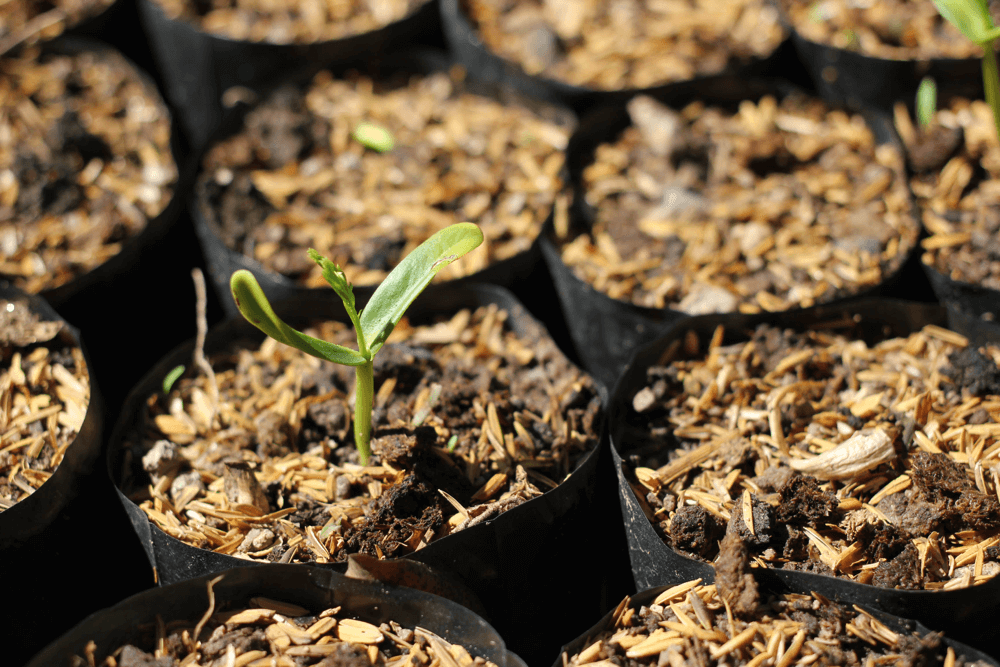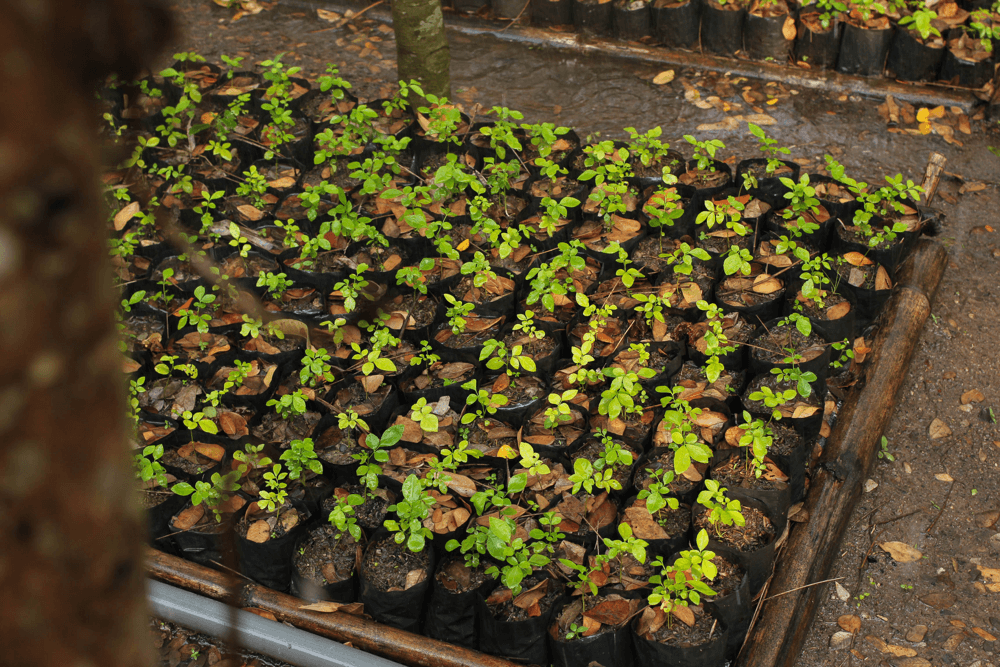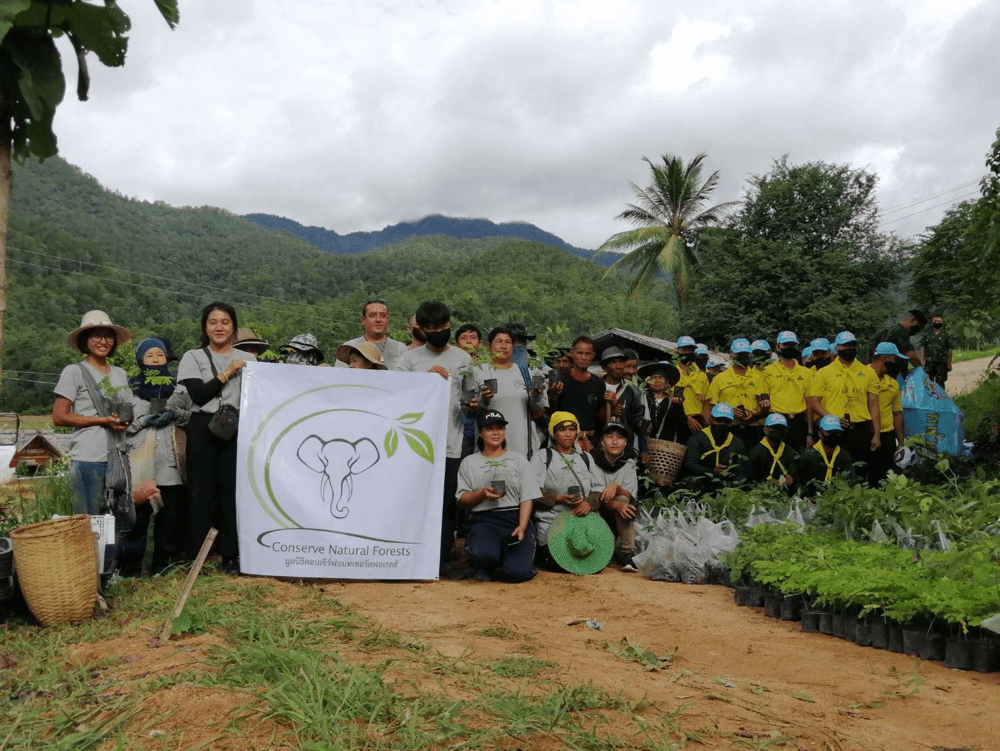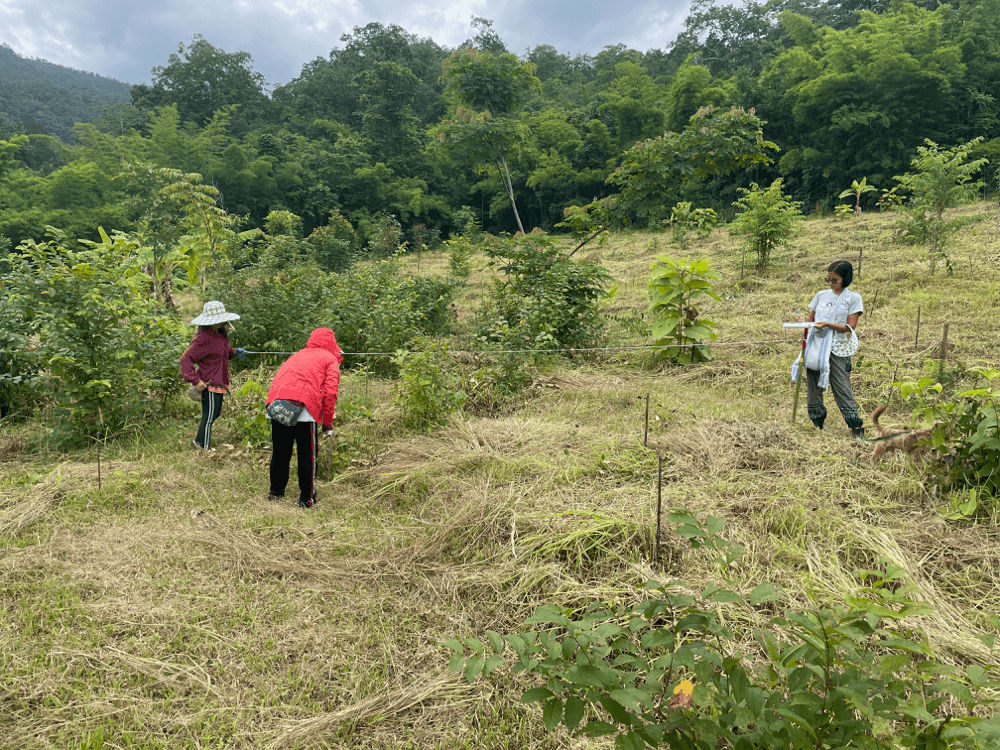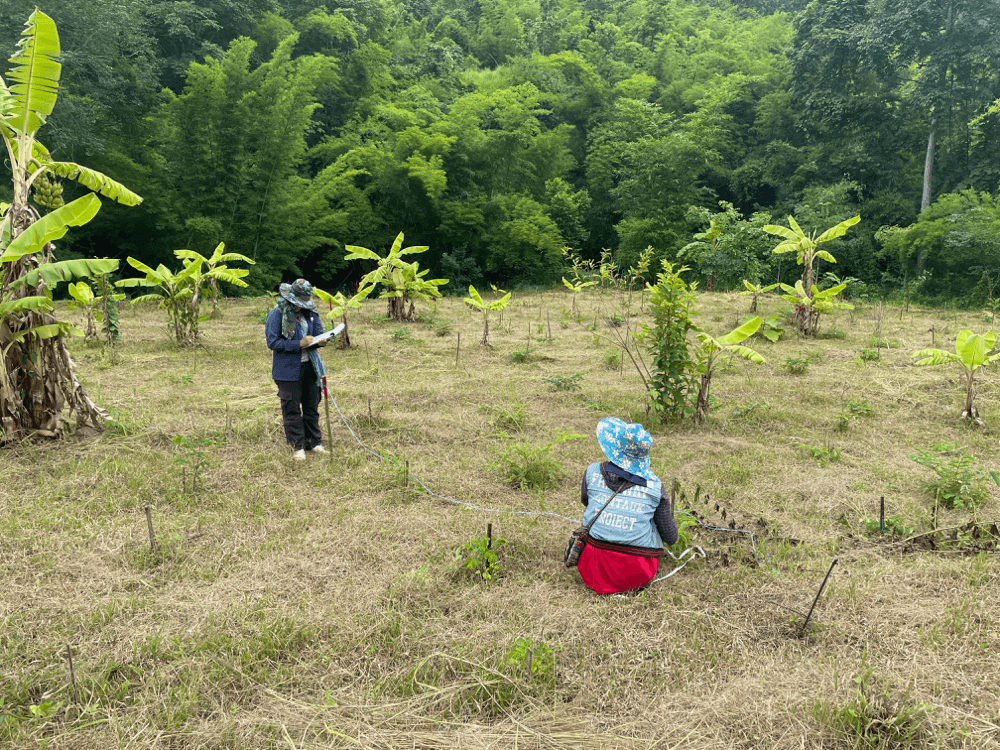
Project Details
Project Description
Thailand is one of the world's biodiversity hotspots, accounting for 15.000 plant species, where 1000 of those, in addition to 280 animal species, are on the verge of disappearing as a result of human activities. Over the last 60 years, countrywide forest cover has decreased from 53% to 35% or 125.000 hectares of land. To put this into perspective, this is an area bigger than New York. Reversing the effects of deforestation is essential to maintain and restore biodiversity, as almost 300 mammal species find a home in Thai forests, including elephants, tigers, sambars, deers and otters, alongside an estimated 8% of the world's tree and plant species.
Part of our work is to protect and enhance the resilience of ecosystems and biodiversity by stimulating regenerative ecological processes. This project promotes functional diversity and species recruitment with the direct employment of local communities through our partners on the ground. Agroforestry systems are implemented through workshops & active contributions to local communities, including donating the excess seeds and seedlings for their own land use. Our trees are mostly planted on government land, with few private landowners participating in the restoration process of their degraded lands, to carry out region-wide operations.
Thanks to sampled direct measurements, and following the region-specific T-VER methodology for carbon sequestration through forestry and agriculture systems, we estimate each tree can contribute to sequestering an average of 135,34Kg CO2e over a 20 years period.
